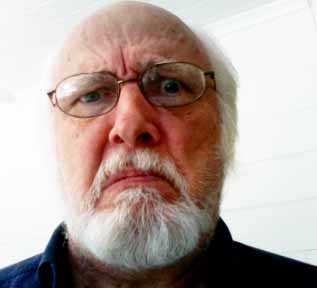
Our approach to well-being through capacity, commits us to a heuretics of potentiality, relative to an electrate metaphysics (substance = potentiality/actuality). The other beginning (Heidegger) already shows the attitude, that treats the history of Being as open to further invention. Such is the significance of the "history of the present" found in Foucault, suggesting that the world as we find it is contingent, and could be otherwise; that the future is open to revision. Walter Benjamin developed a practice that offers some tools and devices for operating with reality as potential rather than actual. As Samuel Weber demonstrated in his brilliant Benjamin's -abilities, Benjamin formulated his concepts as passages between potential/actual, signaled by his usage, naming his terms with the suffix "-ability" (-barkeit in German). Key terms covered in the first part of Weber's study include criticizability, impartability, translatability, citability, with the second part developing legibility, the principle as it informed all of Benjamin's work through the dialectical image and the Arcades project.
The insight guiding Benjamin's formulation has its contemporary version in Derrida's generalization of iterability or citability of any mark in any medium. This capability of the re-mark, to support different signification through repetition, constitutes precisely the dimension of language itself, language as such, however mounted. This potentiality of the mark itself to generate meaning has metaphysical power, and is the dimension that our theory foregrounds for consulting. Benjamin's concepts are designed to move thinking away from literate teleology, substance, actuality, completion, toward difference, becoming, transformation, invention. For this purpose his terms gather and categorize not according to the average of a family resemblance (essence), but seek a limit, an extreme edge or threshold beyond which an identity transforms and alters into difference. The historical process included in this thinking resonates with Heidegger's Ereignis (event, appropriation), bringing into a practice the temporality of becoming by which a concept splits, separates and departs from itself. Thought through this potentiality of language to mutate has a peculiar movement that Benjamin correlated with a new mode of "idea" adequate to modern media of mechanical reproducibility whose prototype is cinematic montage. This imaged idea does not describe but circumscribes: egents are not "inspectors" but "circumspectors."
Benjamin's point of departure is Kant's three critiques, especially the critique of judgment, in which Kant promoted "taste" to the status of a faculty, a capacity of aesthetic discernment with power or potentiality equivalent to understanding and reason. Taste is grounded in an individual orientation on an axis of dis/pleasure, a capacity to be affected on a range of attraction/repulsion, which is communicable through this common sensibility of the human embodied sensorium. Taste, in other words, is the absolute core of electrate metaphysics. The task of the coming philosophy, first declared by Benjamin, and taken up by subsequent thinkers such as Agamben and Deleuze, is to invent this modality of intelligence that is neither reason nor will, but feeling. Benjamin proposed to shift Kant's innovation from knowledge to language itself (this shift is treated also in the Forum on "Experience"). As Weber explained, Gilles Deleuze follows Benjamin's shift, remaining within metaphysics but shifting attention from actuality (energeia) to potentiality (dunamis), which he specifies as "virtuality." We may jump outside this argument for a moment to make the obvious point that the philosophers are adapting metaphysics to the terms of contemporary science, in which Aristotle's causality, the direction of becoming towards completion in a predetermined end, is replaced by emergent and unforeseeable becoming within a frame of complexity, chaos, catastrophe, and related mathematical principles.
The task for a coming (electrate) philosophy is to adapt conceptual (literate) language to the oxymoronic conditions of a concept (essence) without telos. The value of Benjamin is that he pushes his potentialization or virtualization of thought beyond literacy into electracy, that is, into image media, in his design and testing of the dialectical image as a hybrid of philosophical dialectic, cinematic montage, and modernist poetics (Baudelaire). His archival treatment of Paris is a monument of electracy, in that it returns to the Paris of the nineteenth century, precisely to the inventors of "pure art" (pure language) in the bohemian opening of a new dimension within the industrial city, composed through iterability, a work made almost entirely of citations, to demonstrate the potentiality of language, and specifically of the dialectical image -- a scene of the past whose possibility for meaning becomes recognizable, legible, at a certain moment in the present, as a flash of epiphany. This flash (flash reason) of epiphany may be designed, composed, and this is the task of appiphany: to compose dialectial images.
See Samuel Weber, Benjamin's -abilities, Harvard, 2008.

